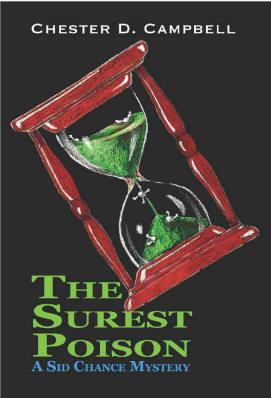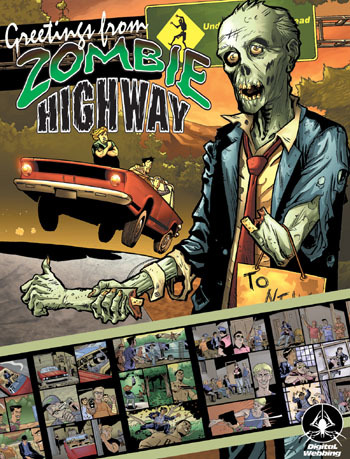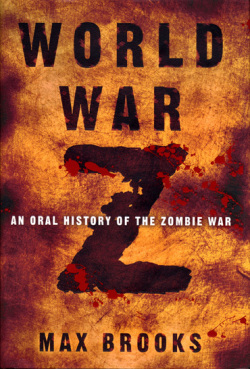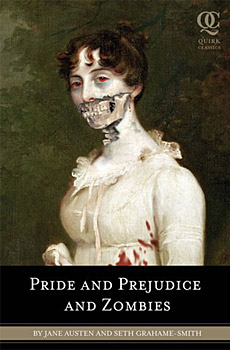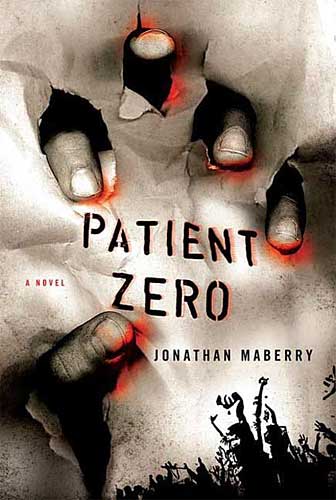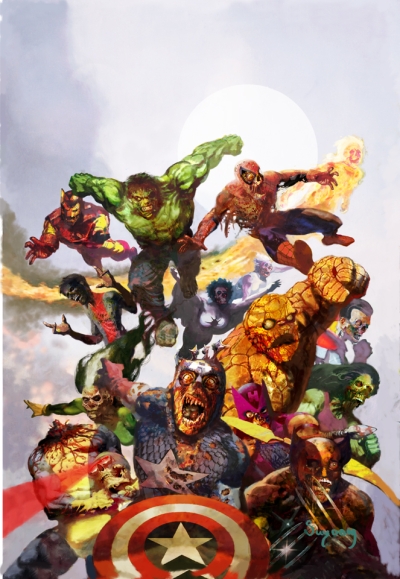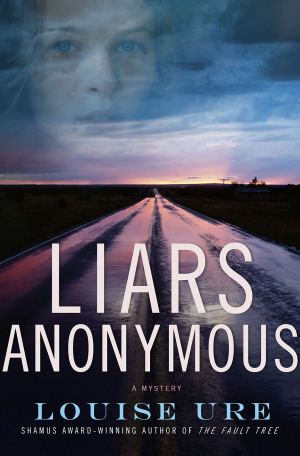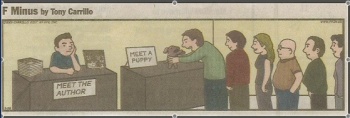
It was a gorgeous day—hot—and a bunch of pals and I had just snagged the very last table-with-an-umbrella outside last summer’s Book Passage Mystery Writers Conference in fashionable Corte Madera, California.
All cotton-mouthed and fading, I threw my book-bag into a chair and did the whole, “hey, anybody want anything from the snack bar?” routine, suddenly hell-bent on getting myself an iced coffee.

The line inside was long and slow, so I’m standing there spacing out, trying not to think about how thirsty I am and how many people are between me and my sublime potential beverage, when this tall blue-eyed silvery guy walks up, points a finger at my name-badge and goes, “You!”
A bit startled, I respond, “um. Yeah.”
“Cornelia Read!” he says, still pointing.

I say “um” again, and he breaks into this huge grin and says, “Marshall Karp,” holding up his own badge, “Our books got published the same month and I’m thinking we need to hang out. Bond. This whole ‘publishing virgins’ thing, right?”
He grins again. I never make it back out to that umbrella table.
My buddies wander inside one by one over the course of the next half hour or so and they don’t leave either. Pretty soon, we’ve taken over the entire damn snack bar—a dozen-plus people trading life stories and cracking up and having the best time anyone’s had since Arlo Guthrie sat down on the Group W bench back in ‘Sixty-whatever. Seriously.

By the third hour Marshall is introducing himself to strangers as “the Jewish father Cornelia’s been looking for her whole entire life,” while I just keep toasting him with my ninety-bazillionth iced coffee, and there’s like thirty of us jammed into the place now, dragging more chairs in from outside and totally laughing our asses off to the point of outright choking.
And I swear the same thing happens every time I run into him. The man is the social equivalent of catnip-for-humans-scented electro-magnets or something… like if they shoved a tank-truck-load of nitrous oxide and the entire history of Vaudeville into one half of that teleportation machine in The Fly and got Groucho Marx and Bob Newhart and Gene Wilder to simultaneously push the Big Red Button, I guarantee you’d get a flash of blue lightning and a sudden whiff of ozone and—hey presto—Marshall would saunter out the other end of the thing, cackling magnificently.

Plus he writes like he’s on fire. In a good way.
The Rabbit Factory, his first novel, rocked my world, and his second, Bloodthirsty, was a TKO of a sequel. Now he’s released the third novel in his fabulous Lomax and Biggs series, Flipping Out, and it’s so good I may go back to school to become a certified public accountant.

In honor of that, I want to repost an interview the two of us did for Spinetingler on the first anniversary of our original debut-novel pub dates.
Cornelia: So your professional history was pretty amazing even before you turned to novel writing… You spent years in advertising creating campaigns like “Thank you, Paine Weber,” then you did a successful play and landed in LA writing for TV, not to mention the screenplay with Jason Alexander. How does the whole publishing gig compare to that?
Marshall: I’ve been marketing a product or putting on a show for years, and now suddenly, I AM the product, I AM the show… and I have to tell you, it’s totally weird to be pimping myself.

When I go to a bookstore, I bring my salad chopper to attract people to the signing table. I’m resigned to the big picture of the business… you show up and try to present yourself. If you like my style or just me and you’ve got $25, maybe you’ll try the book.
Cornelia: What’s the best part?
Marshall: It’s fun to go out there and be with the readers, getting to listen to what they have to say about your work… the stuff I’ve learned from that interaction has been a true education….
When I was in Miami for an MWA conference, I got asked about “the language” in my first book. Now I think we all know that cops in real life tend to say fuck fuck fuck fuck on the job, and you want to be true to that…
Cornelia: Sure, instead of having them yell “Shucky Darn” when somebody pulls a gun or whatever…
Marshall: Exactly… But one woman said to me, “You know, it’s fine in the book, but it’s hard when it’s on the audio in my convertible and I’m driving down Biscayne Blvd. and have to stop at a light.”

I would never have thought of that, if I hadn’t had the opportunity to be out there face-to-face with readers. So in the second book, I ended up taking out 85 F-bombs. Not just for the lady at the stoplight but because when you write and you’re in a hurry, it’s too easy to say “fuck…” sometimes there are better ways to express that emotion.
And cutting out 85 fucks is hard when you’re writing about cops… In Bloodthirsty I went from 115 fucks to 30. It’s hard to get the ring of truth without that language. I made a minor character into a Brit so he could say “bloody” instead. Maybe that’s cheating.

Cornelia: Do you think winding up as a novelist was inevitable, for you?
Marshall: I could always write… I wound up in advertising by accident, literally because when my father made me look for a job after college, I looked at the classifieds I went alphabetically, and I couldn’t do accounting.
I got a job as a direct-mail copywriter at Prentice Hall. A year-and-a-half later I went into Madison Avenue, started doing print ads and television. I got awards and got attention…. But of course the punishment for being a good writer in that business is you get promoted and get put in charge of the writers, so I’m the creative director and supervising instead of writing… same thing as when the head surgeon ends up running the hospital and not operating.
It was good, but I started to miss writing. That’s what drove me to write outside of work in the ad business. The first thing I did was a play, Squabbles. Twenty-five years later, it’s still put on all over the world.
TV people saw that, so I started writing pilots and then movies, which is where I met some of the people I’m killing in Bloodthirsty… met them and worked for them.

I couldn’t spend too much time in Hollywood because my wife and kids were in New York, and I came back and wound up using both skills—my marketing background and my show-biz background—by opening my own Internet ad agency.
This was right when everyone wanted to get into the internet, so I ended up being the gray-haired guy who could go into Chase or Royal Caribbean or drug companies—whoever the big clients were—and all of a sudden it took off, because everybody wanted websites.
I had the long-form skills from the TV business, and I ended up hiring the kids with the blue hair and the nose-rings who the clients were afraid of. The kid with the blue hair can say to the President of Chase, “I can make your logo spin,” and I walk in and ask, “who’s your target audience?”

That’s what helped me get where I am now… within four years I turned that company into something I could sell, and once I sold it I said, “now I can do what I always wanted to do, which is go to my country house and write a book…”
After my movie got produced, a woman in my town came up to me and said, “I like your movie, when are you going to make another?”
I told her it feels like everyone in Hollywood is twelve years old, and I don’t want to spend the rest of my life pitching American Pie Five, so what I really wanted to do was write a mystery novel. She looks at me and she says, “I’m an editor…” So…

One other piece of the puzzle was that I’d worked with James Patterson in advertising. I bounced the idea of The Rabbit Factory off him during a lunch,. He was incredibly encouraging, so I decided try it.
Cornelia: So what drew you to mysteries?
Marshall: That’s what I’ve always wanted to read, so that’s what I wanted to write. It inherently had to be character-based, it couldn’t be about the plot… my play, my movie, they’re always about character.
The character of Mike Lomax came to me years ago: this cop who’d lost his wife and still has to do his job while he’s grieving. He was a three-dimensional character to me long before he was cop… first I made him a MAN.
And then I said, okay, a guy going through this much pain can’t be carrying a book on his own… He needs a counterpoint, and Terry Biggs became the wiseass New York cop’s best friend, who, as they say in the TV biz can “cut the treacle.”

Mike has the heart, but I don’t want people to go oooooooooo for the entire book on his behalf. Terry helps Mike be funny, once they get going. Terry’s the friend I would want if, God forbid, I ever had to go through that kind of pain… a real good guy who knows just the right boundaries.
I think I also wrote enough beer commercials to know what buddies are… I wrote Stroh’s commercials, and sometimes you see a guy screwing his best friend out of a beer…. I don’t believe in buddy-fucking, I believe your buddy’s your buddy. I needed to create someone where there’s that loyalty.

I think I’m quoting William Goldman on this, that “the essence of loyalty is reciprocity.”
Cornelia: I really see that in your writing. In both your books it comes across as the core of what’s happening on the page.
Marshall: My fan mail is always about the relationships, the characters. They want the characters back, they want it to go on….
Cornelia: Character matters. That’s certainly what I want to read about.

Marshall: It’s always about character. I knew I had a good plot, but my focus is always on character… even the minor characters who appear for one scene, I try to give them as much as I can. I try to make them real, or if they’re surreal, as some murderers are, at least to have the ring of truth.
Cornelia: Do you think your other gigs in life have helped inform your writing?
Marshall: Janet Maslin accused me of being a marketing expert when she reviewed The Rabbit Factory for The New York Times, but I’m not trying to sell to you, I’m trying to write it this way because… look, you don’t want to know some guy’s height and weight in a story, you want to get inside his head….
Whenever I wrote a commercial, I didn’t think, “what does the client want to say about his product?” I wanted to be the conscience of the consumer. My job was to understand what the consumer needs and wants.
I don’t market to people when I write a book, I feel what it’s like to be a reader. But I’ve never ever written for the critics. For me, it was always like, “do you want to be avante-garde or do you want to be real?”
Cornelia: Ach, avant-garde. Don’t get me started.
Marshall: I come from real. I spent too many years in New Jersey to have anything avant-garde about me… I’m country.

I like to think that I have a basic sincerity, and I think my characters have it too, even the ones with a little guile like Mike Lomax’s father, Big Jim. He’s Big Jim Lomaxstein. He’s me when I’m trying to manipulate my kids.
Cornelia: Now we’ve both got a year of this under our belts. What would you tell someone starting out with writing?
Marshall: Well, as I said in the acknowledgements, it really helps to write a mystery if you know James Patterson. But in every business I’ve been in, I encouraged the younger people to write. It’s all about giving back.

Cornelia: What do you think is the hardest part of breaking into writing?
Marshall: A British reporter sent me an email asking that very question — what I consider to be the biggest obstacles for new writers. I sent him the glowing points from my rejection letters… you know, “Oh, Marshall is so good, but we want to get into forensics and be CSI clones too…”
Just keep writing. You will find a publisher. You will find an audience—even though there are a lot more MBAs acquiring books these days, and it’s a tough business.

When you write your first book, you can’t imagine that this is ever going to be your day job. Everybody’s got to keep going with it to make it.
I watched the DVD of Da Vinci Code a while ago, and there was an interview with Dan Brown on it.
He said that he’d first realized he had something when he went to a bookstore in Washington for a signing, and there were all these people hanging around outside the store. He asked if they’d had a fire or a bomb scare, and was told no, they’re here for you…
Have no expectations, just those from yourself. I was happy having been a writer in various careers all my life, happy to have finished a book. When I got to the end of that first draft, that was, to me, monumental. When I found a publisher, that was just an unbelievable added benefit that turned the personal goal into something I could do—what a lot of writers want to do—which is to share what I’ve written.
Writers don’t get into it for the money. Writers write because that’s what they want to do…
Cornelia: …I heard Robert Crais speak the other day. He said if you want to get into writing for the money, you should go sell BMWs instead.
Marshall: Selling BMWs. Exactly… I was going to say sell cocaine. “Buy enough cocaine, we’ll throw in a BMW!”

Cornelia: I’d end up buying all of anything you had to sell. Stick with the books… I can almost afford books. Any other business, you’d bankrupt me without even trying.
Marshall: I’m still learning this business, and I find it fascinating, but it’s a process. I find it really interesting that the readers know so much more about the business I’m in now than I do.
When I was in TV, I knew a lot more about how it all worked than the average viewer… The audience doesn’t know what goes on behind the scenes.

But the fans in this business? The real fans who are at the conventions and signings? They know more than I do. I find that fascinating, and to some degree intimidating… They may not do what I do, but they know more than I do. I’ve been to book events where somebody raises a hand and says, “didn’t Carl Hiaasen do something like that in his fourth book?“
And I say, “I’ve only read two of his books, I don’t know enough! I don’t know as much as you do!”
The readership raises the bar for you. The only thing that’s ever came close to this for me is when I started doing my play.
The first eight weeks we were doing it, I’d come in and sit with the audience, listening to what they said about it. I made changes because of audience feedback that they didn’t know I was hearing.

Cornelia: What’s the best part of it, for you? How does this compare to the other kinds of writing you’ve done over the years?
Marshall: Of my many writing incarnations, this is the final frontier, because I really enjoy the ability to create without a committee. In advertising—TV and movies even more so—it’s about the committee.
These days, the only committee I have is when I get up and think I’m going to write something and the characters want to do it differently… it’s almost like an actress saying, “my character wouldn’t say that!” She’s pissed off. When you’re “the actor” as a writer and that happens, it’s fascinating.

But the best cool thing is you get to meet a lot of really fascinating, three-dimensional, fun people and you’re way at the top of their list. This is a really fascinating genre, and how great that there’s something this interesting that brings us all together.
I found it really refreshing that the first fan I talked to at LCC was a pediatric cardiologist, and I wanted to say, “You’re saving lives every day, let’s talk about you!”
Cornelia: Speaking of saving lives, I want to know more about the charity you’re involved with, Vitamin Angels…

Marshall: There’s great information at http://www.vitaminangels.org. Working with them started out as my reaction to 9/11.
My daughter was at Ground Zero, and that left me with a visceral understanding that I had to make a difference in the world. There are a great many worthy charities out there, but I had to know I was doing something real. Something that mattered. I didn’t want to just buy tickets to a charity dinner, or bid on something at an auction for a good cause…
When I found out about the Vitamin Angel Alliance, I realized I could use my marketing abilities and my writing skills to raise awareness and money for an organization where you can literally have the accountability that what you’ve done matters–to specific people, specific kids around the world. It’s quantifiable.
Cornelia: Tell me about what they do.
Marshall: They get vitamins and supplements to kids and families around the world. Vitamins can prevent a tremendous amount of suffering. We KNOW this. We KNOW how it works, but there are so many people who don’t have access to basic, essential nutrition.
Five cents’ worth of Vitamin A can keep a child from going blind. Pre-natal vitamin deficiencies kill upwards of 585,000 women and four million newborns every year. When people ask me, “what’s the best thing you’ve written?” I tell them it’s what I’ve written for Vitamin Angels.
***
Now that Marshall’s got three books out, I think we’re going to need a bigger coffee shop for the next time we get together… possibly a circus tent.

I guarantee you won’t find a better way to spend an afternoon than in this guy’s company, whether on the page or in real life.
So, ‘Ratis, what makes you flip out? Best answer gets a free copy of Marshall’s latest book (which is AWESOME!)

